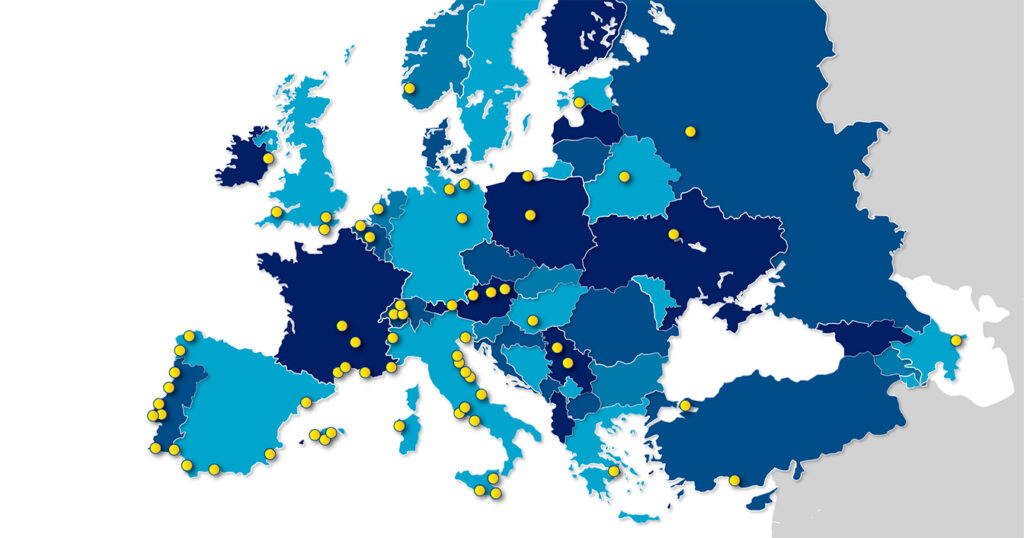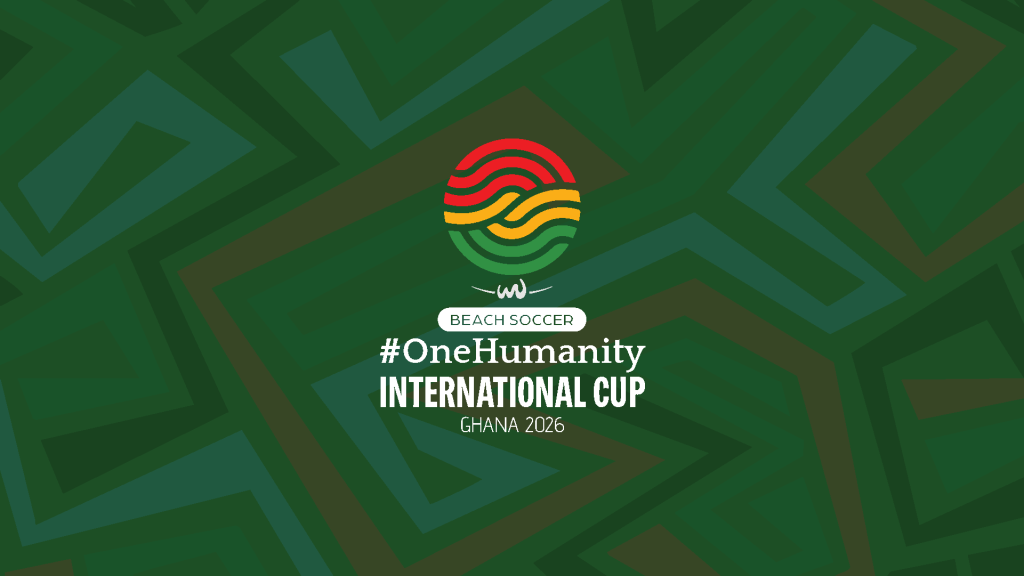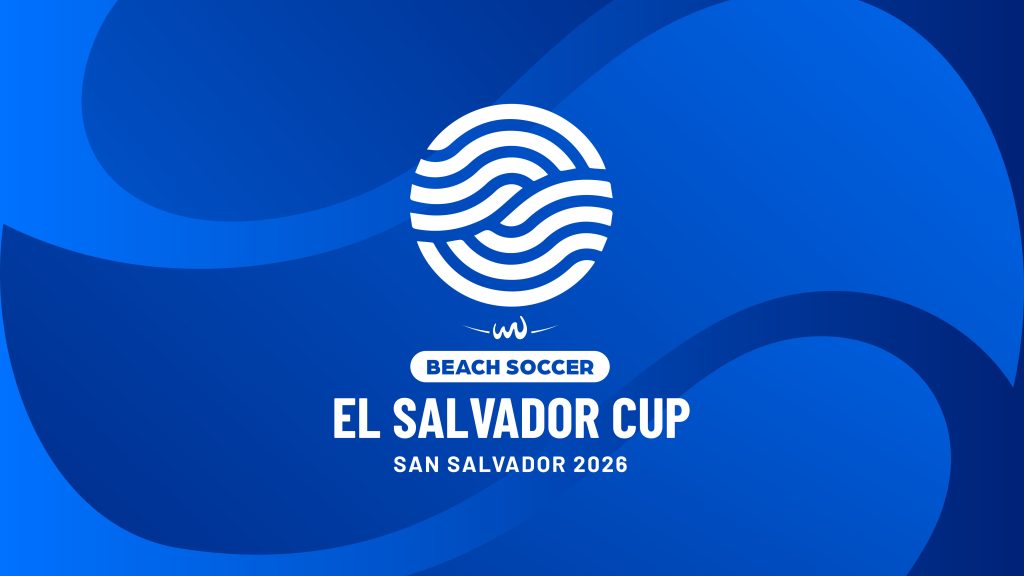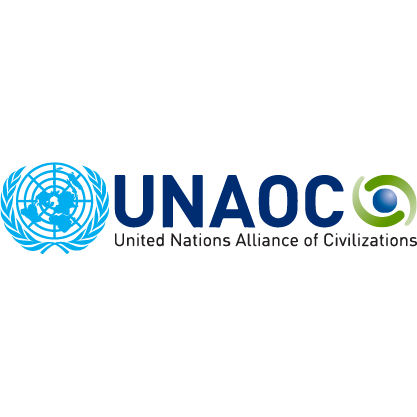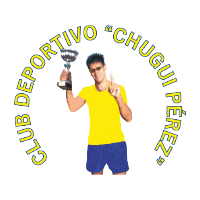Two golden decades have written beach soccer’s history in Europe. Find out some of the things you did not know about the continental league!
The Euro Beach Soccer League has become one of the best testimonials for the growth of beach soccer. In its 20-year history, the continental league has established itself as one of the most prestigious, consistent and comprehensive competitions on the beach soccer global stage.
At the same time, it has been weaving a cross-continental fabric that has strengthened the links between territories, football associations, and players throughout Europe. And there are some pretty amazing numbers (yeah – we love numbers) to back up this claim.
In its 21 editions, the Euro Beach Soccer League has travelled to 67 different venues visiting 22 different countries, and bringing top class beach soccer from to every corner of the continent; from Ireland to Azerbaijan, and from Turkey to Norway.
Over the past two decades, the Euro Beach Soccer League has visited top European cities such as London, Moscow, Berlin, Rome, Lisbon, Baku, Minsk, Athens, Belgrade, Vienna, Istanbul, Marseille, Dublin, Kiev, Brussels, The Hague, Bern…
Many of them have become regular Euro Beach Soccer League stages. Moscow, has hosted beach soccer events every single season, without fail, for the last ten years, and Marseille stand as the location to have hosted beach soccer events on most occasions (8), followed by another iconic place, and a favourite to many beach soccer players and coaches, Montecarlo, in Monaco.
The building of champions
In terms of champions, three teams share the honour of having won the Euro Beach Soccer League on the most occasions, as Spain, Russia and Portugal have five European titles. The Spaniards could have become the first ones to win it a record sixth time, but they were denied the opportunity by Italy in Alghero last September, as the Azzurri sealed their second ever continental crown.
The Euro Beach Soccer League has not only crowned champions, but has also become the main stage where great players become legends. Names written in beach soccer’s history books have sealed their amazing legacy on the highest level, in the Euro Beach Soccer League.
Madjer and Amarelle, seen by many as two of the best players in the history of the sport, offered epic battles on the European sand, and helped each other become bigger and better.
But not by way of an aggressive rivalry like we see in other sports. In fact, these two stars are great friends, each respecting and admiring the other very deeply. We’re not sure the same can be said for the principal opponents in beach soccer’s biggest brother…
Born in Monaco
The Euro Beach Soccer League was conceived at the terrace bar of Le Meridien hotel in Montecarlo, when the promoters of beach soccer in Montecarlo, France, Italy, Spain and Portugal got together to change the format of the beach soccer competitions in Europe.
In that meeting, Natalie Aubery (Montecarlo), Joel Cantona (France), Alex Colombo (Italy), Nicola Owen (Germany), Eric Steffen (Portugal) and Joan Cuscó and Santi Soler (Spain) met with the Graham family and Gabby Roe Kelly, from the Beach Soccer Company, to draw up plans for the future of the sport. That very day, a new era of beach soccer was born.
“We understood that the sport needed a change. We were no longer satisfied with the format of the competitions in Europe at that point, and we wanted beach soccer to grow in Europe”, BSWW Executive Vice-president Joan Cusco explains.
“We knew that the sport had a great opportunity to grow in Europe, and we designed a system in which the competition would travel across Europe, giving the countries the chance to play more and more”.
In 1998, the Euro Beach Soccer League started walking, and it did so in Syracuse (Italy). That same year, the competition travelled to Budva (modern-day Montenegro), Alicante (Spain), Travemünde (Germany), Figueira da Foz (Portugal) and Montecarlo. The continental league was born.
In that same year, there were three men down on the sand that are still competing at the highest level, and have not missed a single year of the competition: the Portuguese ace, Madjer, as well as two Spaniards that began as players and are now two excellent coaches: Joaquín Alonso and Nico.
The sport, its quality, and the generally high level of the teams that play it, are strongly tied to the Euro Beach Soccer League. “I remember on the first matches, years ago, the level of the teams was way lower. There were not many competitive teams. And today, lots of teams can pose a serious threat. The level is much more balanced now” explains Joaquín Alonso, Spain’s National Coach. “Today, most of the players are beach soccer specialists, which confirms that the sports is truly evolving”, he added.
Madjer also recalls one event in particular: “I remember one of my first events in the competition was in La Coruña, and it was an indoor event. The stands were packed, and the competition was full of former top-class football players which, without a doubt, helped a lot in the promotion of the sport in the early stages”.
Madjer also remembers how the competitiveness of the teams helped the level of the sport grow, making Europe one of the most-developed places in the world.
Nico Alvarado also has great memories of that days. “I saw myself playing top-class international competitions, surrounded by players I used to see just on TV: Míchel, Butragueño, Joaquín, Quique Setién… And also sharing very special moments with them, playing in packed stadiums in the most amazing places in the world. It is something you cannot forget“, he explained.
“The level of the sport has grown incredibly. Today, you see very balanced games, and many teams cah fight for a World Cup or an European League. The work done in this aspect has been awesome, and I think it will keep being done, because more and more people keep joining the vibe, feeling the beach soccer fever”, he added.
Another man that joined the beach soccer circus shortly afterwards – and is yet to leave it! – is Switzerland’s Angelo Schirinzi: “I remember watching beach soccer on TV, a game in Montecarlo, with Eric Cantona. I immediately fell in love with the sport! I flew to Montecarlo that very week, met with Joan Cusco and told him that Switzerland had to be part of this sport.”
Having led the Swiss to their only European title in 2012, when asked to name his favourite event, Schirinzi could not decide: “there were so many… I remember Mallorca, with a wonderful stadium, many events in Italy, or the event in Hyde Park, in London… it is impossible to pick just one.”
Before long, Schirinzi, and all the beach soccer fans all over the world will have more events from which to pick, as the beach soccer wave shows no signs of crashing anytime soon.
After more than 1309 games in 21 editions, the Euro Beach Soccer League looks as young, vibrant and full of potential as ever, with the capacity to grow exponentially.
The sport continues to bring new competitors, new venues, new countries and new stars to the stage, and it is clear that it will be doing so for some time to come.









